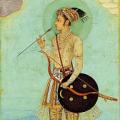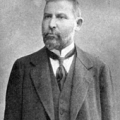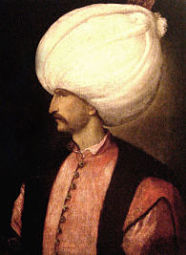190 - Turkish Delights - Philosophy under the Ottomans
Kātib Çelebi defends cigarettes and coffee and Khojozāda wins a prize for evaluating the Incoherence of the Philosophers, along with several other philosophical and religious debates in the Ottoman empire.
Themes:
• E. Ihsanoglu, “Institutionalisation of Science in the Medreses of Pre-Ottoman and Ottoman Turkey,” in G. Irzık and G. Güzeldere (eds), Turkish Studies in the History and Philosophy of Science (Dordrecht: 2005), 265-84.
• G.L. Lewis (trans.), Kātib Chelebi: The Balance of Truth (London: 1957).
• F.J. Ragep, “Freeing Astronomy from Philosophy: an Aspect of Islamic Influence on Science,” Osiris 16 (2001), 49-71.
• A. Shihadeh, “Khojazāda on al-Ghazālī’s Criticism of the Philosophers’ Proof of the Existence of God,” in T. Yücedoğru et al. (eds), International Symposium on Khojazada (22-24 October 2010 Bursa): Proceedings (Bursa: 2011), 141-61.
• M.C. Zilfi, The Politics of Piety: The Ottoman Ulema in the Postclassical Age (1600-1800) (Minneapolis: 1988).
Thanks to Khaled El-Rouayheb, Christoph Neumann, Sait Ozervarli, Reza Pourjavady and Eric van Lit for advice on this episode.







Comments
myth of post-medieval decline
Howdy from Texas,
You say you hope this myth is put to rest. How do I parse this? To say it is a myth is to suggest it is untrue and I think you are suggesting the idea of post medieval is untrue.
My impression of this post medieval decline has been strengthened by your podcast series. I was impressed by the creative ideas of some of the early islamic thinkers. I had never heard of most of that before your podcasts on the subject. But, I have not heard anything original or interesting from the post medieval writers as you described them. There seemed to be a lot of thoughtful work, but it was all glosses and commentaries. I have relistened to the recent podcasts and I just don't hear any original philosopy.
Enjoy your break
In reply to myth of post-medieval decline by Ralph
Originality
Glad you are enjoying the series! I definitely do want to deny that there was an intellectual decline in the Islamic world. I'm surprised that you don't think we've seen any original philosophy in these later periods - the most obvious case is Sadra, whose views on analogy of being and substantial motion are I think indisputably new and interesting. Beyond him, we need to bear in mind that we are dealing with stuff that is almost unbelievably badly researched - there were whole centuries of Ottoman or Mughal thought where I found only a few articles worth reading. But just from what we looked at in the podcast, there were for instance contributions in logic (like the technical analysis of the liar paradox and the relational syllogism), epistemology (the skeptical stuff about mental vs concrete existence in the Mughal period), the relation between religious traditions and metaphysics (the ecumenicism of Dara Shikoh, also we'll later see another example with Shah Wali Allah), and even science (revision of Ptolemaic astronomy). In some upcoming episodes we'll also see some good stuff on political philosophy from the 19th-20th centuries. Given that the surface of this material has barely been scratched, this makes me very confident that there is a lot more to discover in this period of supposed decline.
In reply to Originality by Peter Adamson
apparent decline
Maybe another factor that makes it look like a decline is that the development seems to be going "the wrong way" from a modern observer's point of view. There are many topics of interest in today's philosophy that doesn't get treatment by these thinkers you talked about. For example, very little on epistemology, ethics, aesthetics, philosophy of science, philosophy of mind, free will, political philosophy, other stuff that gets discussed today. Instead, they were talking about mysticism, or obscure things like Neoplatonic emanation, illumination, substantial motion, which are not that interesting today. Even liar paradox can be dismissed as mere trivia and not central to today's philosophy. No wonder today people rarely talk about Suhrawardi or Mulla Sadra (outside Iran). That's how I with a critical hat looks at it.
Mathematicians and coffee
The remark about Mathematicians being simple machines to turn coffee into theorems is usually attributed to Paul Erdős (or Erdős Pál in its Hungarian form), although it is a remark of Alfréd Rényi, another Hungarian Mathematical prodigy.
I found that the debate about coffee and cigarettes in Turkey fascinating. A similar debate was had in Europe at the same time among Christians. Although the discusion was reduced to farce when discussion of whether it is was permitted for a priest hearing confession to use snuff.
One of Tsar Peter the Great's defiances of the Russian Orthodox Church was the granting of a tobacco import into Russia. Even today Russian priests are not meant to smoke, and to do so in public is considered scandalous.
Three centres
Hi Peter,
this was an interesting episode - the move from India to Istanbul was interesting.
Mugal India had many connexions to Iran (Persia), the Emperors usually taking Persian wives and speaking Persian in the court. So I would not be surprised to see scholars moving between Iran and Persia. However, it would seem that they also easily moved between the Ottoman Empire and India also.
One question - what language was used in these writings? Persian and Arabic would seem to be Linguae Francae - but perhaps Turkish was also used.
What is also interesting from the recent episodes is that there are three centres in the Islamic world: Iran, India and the Ottoman empire. It would also seem that they engaged with the tradition of Philosophy that has been covered, but they also engaged with their neighbours - in India the classical Indian Philosophy and in Istanbul with European Philosophy.
One of the points of contention between the Sultan of Istanbul and the Hapsburgs of Austria was the title of "Roman Emperor". Both claimed this title - the Sultan by the conquest of Constantinople and the Hapsburgs by a tenuous link to Frederick Barbarosa. This rivalry lead to skirmishes and battles - but did it also lead to Philosophical duelling between the two empires?
In reply to Three centres by Bear
The three empires
Thanks for these interesting questions. You're right that scholars moved back and forth between the empires quite a bit - this is how the Shirazi tradition spread beyond Iran, for instance. And I think (in part because of the importance of Iran) this later philosophical stuff is indeed mostly in Persian or, of course, Arabic - long the standard language for the intellectual disciplines. However there are some scientific works in Ottoman Turkish too and translations into Turkish (but I know very little about this; perhaps someone else can enlighten us).
As for Byzantine/Islamic debates or the like, that too is an excellent question. I don't really know the answer but I will look out for material on this when I get to Byzantine philosophy. I would say it is an area that badly needs further research, just like the later Islamic empires and their philosophical traditions.
Constantinople, not Istanbul?
Some of your jokes seem to imply that the name of the city actually just because of the Turkish conquest; but Wikipedia claims the officially name change only happened in 1930 (though it also hints that in this case "official" means "international"). It also says that some form of the name Istanbul has been around from before the conquest, and derives from a Greek phrase "εἰς τὴν Πόλιν". So I think the name change was a slow process that can't be identified with the change of management.
It's pity, because I have in my mind's eye, hordes of Turkish soliders swarming over the walls in a smoke filled battle, cheerily singing That Song.
In reply to Constantinople, not Istanbul? by Adrian Ratnapala
Constantinople
I was wondering when someone would pick me up on this! I actually wondered about the name and looked it up, and saw that indeed it was called Istanbul (though not officially) earlier than the conquest. So probably I should change this in the book version, but it made for an amusing running joke at least.
Sufism
Turkish philosophy begins with Buddhist sutras, which they adapted to Turkish. From 9th century, Turks are familiar with philosophical wisdom. With the sufism and Islam, they acquired Greek- Arabic philosophies and carried it through ages. Sufism made Ottomans anti- capital and content with the present. They never searched for more. Turkish- Ottoman philosophy is a pre- Marxist socialism.
Ottoman Commentaries on al-Ghazali
Here is an interesting interview on Ottoman philosophical commentaries:
http://www.ottomanhistorypodcast.com/2016/07/ghazali.html
Lack of printing press
Hello Prof. Adamson,
I understand now that the perception of the decline in later Islamic period is from a lack of research, but I still think there might be some truths about this myth as the Islamic philosophy might not be declined, but still fell behind the progress in the western philosophy.
I think one of the reasons for this is the lack or the late arrival of printing press to this civilization and I was surprised you haven't mentioned it. After the 15th century the books and thus the thoughts and ideas were much easier to disseminate in Europe, but this didn't happen in Ottomans or other Islamic empires. The printing press was famously brought to Ottomans by Ibrahim Muteferrika in early 18th century after nearly 300 years and even in that case the sheikulislam banned its usage for religious texts, which as I understand now, means everything about philosophy in the Islamic world. Wouldn't you think this had a profound effect on the Islamic philosophy?
Thanks again for the podcasts,
In reply to Lack of printing press by Can
Printing press
That's a good point - I don't know much about the history of this but my vague memories align with what you say here. Of course, philsoophy got along just fine for most of its history without the printing press so I'd be careful before assuming that is absence by definition means being philosophically or scientifically backward - still the dissemination of thought and knowledge to a wider range of people changes the nature of philosophy and science, and presumably not for the worse. Actually your observation goes well with my general impression which is that philosophy in the Islamic world was (until colonialism) very stable, developing steadily without massive paradigm shifts such as happened in Europe in the 17th century.
Actually one could write a book recasting the history of philosophy in technological terms: earlier, the explosion of philosophy in the 9th c Islamic world had a lot to do with the adoption of paper-making technology.
Add new comment